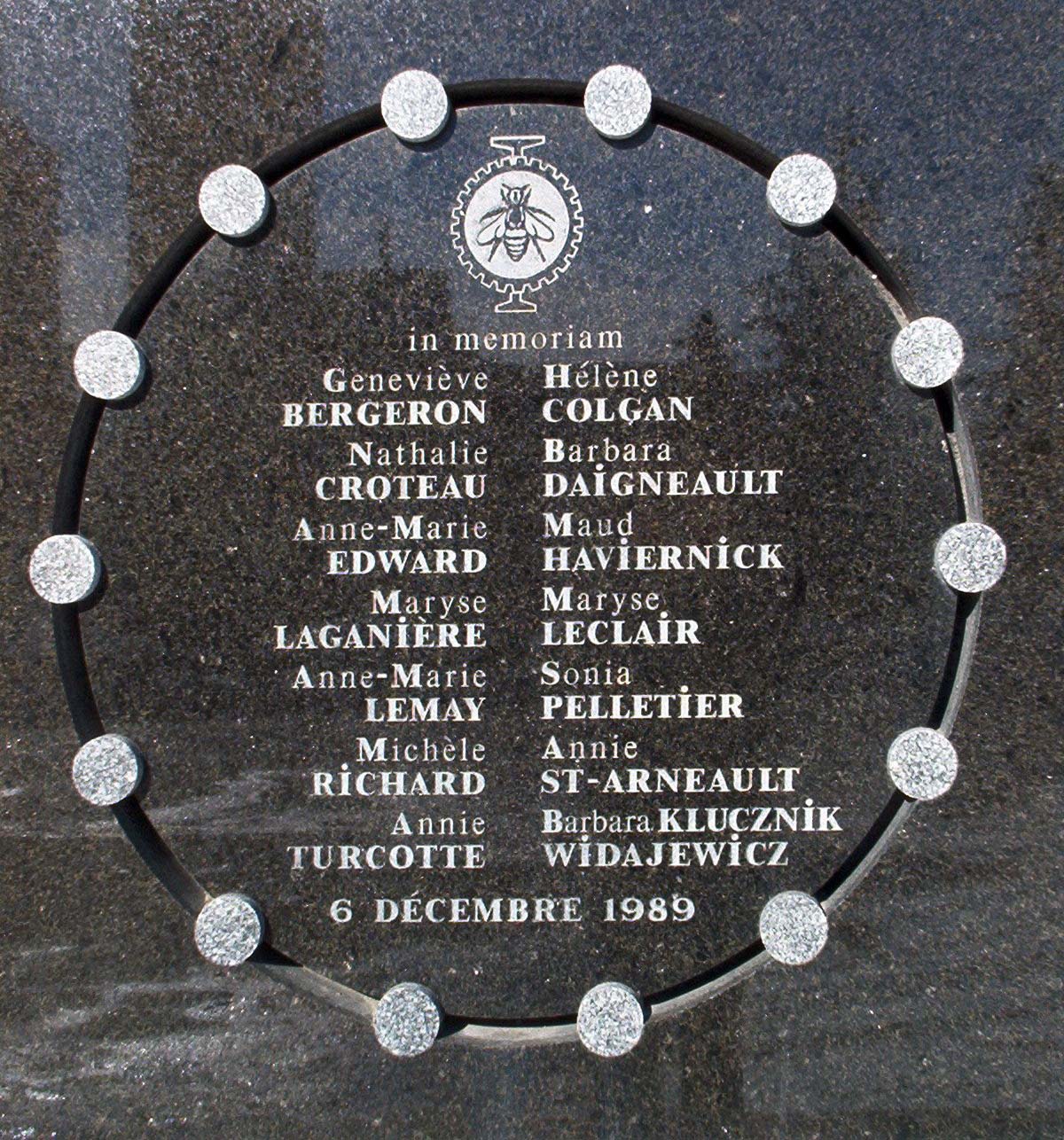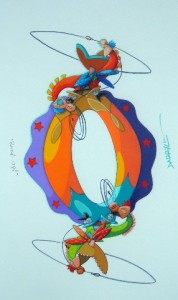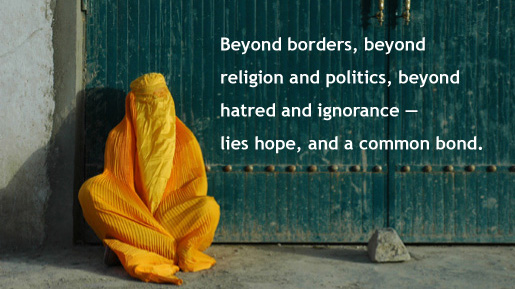Guyside: when we go wrong
Like most of North America, I was horrified to hear of the shooting / stabbing murders of six people in California. Those murders were followed by the suicide of the young man who carried out the mass attack, Eric Elliott Rodger. There’s been a million words said and written already about him, and I’m going to try not to rehash those.
Rodger left behind reams of video and writing about himself. He felt he was unable to “get women,” apparently. He hated women for their rejections, and hated the men who were able to “get” women for their “prowess.” He haunted “Pick-up Artist” and bodybuilding forums online, and seemed to boil with anger at those whose actions left him alone and miserable.
When I was a kid, there were people I went to school with who I quite easily could have seen carrying out an attack like this. Angry, obsessive about guns and violence, mercurial, bitter about women in the extreme. Seething underneath, their rage only surfacing when liberated by alcohol or drugs, even their jokes full of meanness.
None of the people I went to school with ended up doing anything. At least that spectacularly horrible. They drifted out of my orbit a long time ago, becoming the sort of people you only think about when something like this attack happens.
It’s difficult for me to make sweeping prescriptions about what would stop these attacks from happening, what might have stopped this most recent attack. I’m Canadian, and it’s easy — and dishonest — to be superior. We had our own misogynist tragedy in Montreal in 1989. That one left 14 women dead at the hands of someone who blamed “feminists” for his own failures. More recently, five young people were stabbed to death at a house party in Calgary, Alberta. The person charged is the young son of a senior Calgary police officer.
I’m not a parent, so I can’t claim I’m having meaningful chats with my sons about these issues, or caring for their mental health.

A Wikimedia image of the memorial to the 14 engineering students who were murdered in the “Montreal Massacre.”
So I guess all I can say is this: there are people out there who are broken. It might be they’re wired wrong; it might be that circumstances have conspired against them; it might be they’ve authored their own misfortunes. But they’re broken. Most of the time, these broken folk are more harmful to themselves than anyone else. But sometimes, and I don’t think any of us know how to tell when, they decide to take up arms against others.
So what can I, as a man, do about this? A few things, none of which make me feel particularly fulfilled. If there are younger men in your life — sons, nephews, friends — show them a positive model. If you’re concerned about attitudes or behavior that you see, SAY so. Reach out to them. If you see the corrosive attitudes which lay under Rodger, and seem to lie under so many of the perpetrators of this violence, say something about it; do something about it. Advocate for social changes you’d like to see with your political representatives. If I were in the US, I’d be talking about restrictions on firearms ownership and getting in trouble EVERY DAY. Here in Canada, we aren’t plagued by gun violence as our southern neighbours are, so I don’t feel that urgency.
We’ll never live in a world free of hatred, or of the violence that hatred can cause. But doing something to improve the situation is better than doing nothing.
Read MoreGuyside: An honorable man
If I needed proof I was getting older, it came when I started into a level of crankiness that gradually built to the point where all I needed was a pair of reading glasses on the end of my nose and a walking stick to shake while inveighing against “those kids.”
Whether it’s bad luck, the randomness of the universe, or some sign of an actual trend, I’ve been seeing a lot of things lately about sexual assault in online or “geek” culture recently, and it’s getting me angry. There seems a predictable pattern to it: first, a woman writes or says something about … well, it could be almost anything. One example is Janelle Asselin’s critique of a comic book called Teen Titans. Then, a dense cloud of misogyny and ad feminem attacks follows like a cloud of gnats around a hiker. In this case, here’s an essay about what happened to Asselin after she wrote the critique.What happens after that? Usually, we all (we being neither the woman it’s happening to, nor her friends, nor the misogynists who are being misogynist) forget about it.
This hasn’t come out of nowhere. I remember when one of my favorite bloggers went underground after truly horrifying threats and comments were rained down upon her. But as the years go by, I’m finding it more and more difficult to forget about this stuff, to “get past it.” The words and threats that pop up online exist in the “real world.” There’s no shortage of men who seem to hate and fear women. But when you combine these attitudes with the anonymity that can be offered up by the online world, it can be utterly heinous.
So what is to be done? A few things, I think. The first is to not propagate these attitudes. To think about the way in which you as a man interact with women, how you agree, how you disagree, and how you debate. I disagree with women all the time, and I have a remarkable range of ways I can do that without reducing them to their genitalia or threatening them with sexual assault.
The second thing you can do is support women in your life who are subjected to this behavior. At the very least, those of us who are not trolls need to be there for our friends when they are being threatened and harassed.
The third step is the one that seems more difficult for many people: speak out. When you see this happening, tell the person that what they’re doing is wrong. If a woman is being threatened with rape for having the temerity to voice an opinion — that’s wrong. Say so. Publicly.
There are lots of attitudes that I would prefer didn’t exist at all in this world. But that can’t happen with the snap of a finger. If our society is going to become more egalitarian, laws won’t do it; changing minds will. One step in that is telling the trolls that we see them and we won’t tolerate their behavior. Edmund Burke wrote “When bad men combine, the good must associate.”
When I was a younger man, I suspect I was a bit more reticent about my views. But now? I give much less of a shit. I plan on being as vocal as I can when I see women being silenced by threats of rape and violence. I hope you will too.
Read MoreGuest Post Roundup: Sex, Generations and A Whole Lotta Love
As we come closer to the year’s end, I’d like to express my gratitude to a few of my colleagues who took the time to publish their thoughts on Flashfree this year. And, althoughI receive a lot of solicitations, there are few that I feel are worthy of your time or your close read. These, on the other hand, rocked my world, not only because of their breadth and finesse but also because of the love behind the words and thoughts.
This is a Roundup that you don’t want to miss.
[Credit: Special and enduring thanks to artist Darryl Willison of whimsicalwest.com. Please visit his site and support his work!]
- Should fatties get a room? Dr. Brian Hughes has lent his fine prose to this blog several times and often writes insightfully about how our society takes advantage of women. When I stumble across something on his blog that screams Flashfree, I reach out and say pretty please. Brian rocks!
- Should I or shouldn’t I? Oncologist, journalist and educator Dr. Elaine Shattner has spent most of her online bandwidth on discerning the facts about breast and other cancers. Let’s face it; there is a lot of information swirling around the Interwebz and when it comes to figuring out what it means, well, the challenge can be daunting. Want to know more? Elaine’s your girl for the 4-11.
- Anti Anti-Aging, Pro Great Glow. Do you want to fight your years? Or fight FOR them? Writer and author D.A. Wolfe dishes up some provocative prose and challenges the inner you. This one’s got “win” written all over it.
- Counterterrorism, women and 9-11. Doesn’t sound like a topic for Flashfree, does it? But my friend Anne Weiskopf shares a poignant piece about what it means to be a woman. And a mother.
- Want to get your groove on? Move. Alexandra Williams, motivational speaker, fitness writer, radio host and inspirateur nails it with a wonderful post on sex, exercise and wellbeing.
- Vagina’s are like self-cleaning ovens. Wait! What?! Yes, gynecologist and sex expert Dr. Jen Gunter makes a guest appearance to shake up the idea that douching is a good idea.
- Have you crossed the Big M finish line? Author Sarah Bowen thought she had. And tells us how she hit the reset button before the race ended.
- On Becoming Bendy. Author Patti Digh is at it again. She’s changing our world, one day at a time. And wow, has she ever changed hers’ this year. Want to be a better you? Bendy. Who said that Gumby didn’t have an alterior motive?
- Are you becoming your mother? When was the last time you looked in the mirror and asked yourself the very question that my friend, motivational speaker and author Cherry Woodburn asks in this post? Are you a generational profiler?
The Incredible Counterterrorism Efforts of Two 9/11 Widowed Mothers: Guest post by Anne Weiskopf
I am proud to feature this wonderful post by my friend and blogger Anne Weiskopf. Although it focuses on 9-11 (a topic that those of you who know me personally understand that I avoid like the plague), the larger story is really about the importance of support and sisterhood, and reaching outside our comfort zone.
Although the post is considerably longer than usual, it’s well worth every word. Please show some love.
[Photo credit: http://beyondthe11th.org]
Imagine being the wife of a passenger on American Flight 11 from Boston to Los Angeles on September 11, 2001. Now imagine being 7 months pregnant with your 3rd child at that moment. Imagine still, meeting another Widow (8 months pregnant with her 2nd child) whose husband was on United Flight 175, from Boston to Los Angeles on that fateful day.
So begins the story of Susan Retik and Patti Quigley, who were both pregnant, and widowed, on 9/11. These two women, residents of Boston-area suburbs, met for the first time months after September 11th. Through their suffering they created a strong bond, each woman uniquely understanding the other’s experience, especially of having a baby who would never know her father.
As Susan and Patti were being comforted and supported by so many, including family, neighbors, co-workers of their late husbands, and the government itself, they began to research the conditions and circumstances facing other widows, those halfway around the world in Afghanistan. Their situations were far from analogous. According to Susan, “Decades of conflict had ravaged Afghanistan, leaving hundreds of thousands of women without husbands — a culturally necessity for Afghans — or basic resources. In many cases, Afghan widows had no means to feed, clothe, or shelter their children. Their situation was desperate.”
As it explains on their website:
The approximately 2 million Afghan widows are among the most impoverished and vulnerable peoples in one of the poorest countries in the world — yet they are often overlooked. Culturally displaced, widows in Afghanistan are stripped of whatever resources and respect they had when they were married. About 90% of Afghan widows have children, and the average widow has more than four.(1) Approximately 94% are illiterate.(2) It is difficult to overstate the bleak reality of everyday existence for these women as they struggle to feed their children and simply survive. Suicide sometimes seems like the only way out. According to a 2006 UNIFEM survey, 65% of the 50,000 widows in Kabul “see suicide the only option to get rid of their miseries and desolation.”(3)
Impoverished and utterly without resources, these women cannot lift their focus beyond day-to-day survival. As a result, their children are also trapped in the cycle of poverty without hope for a better future. The only way to break this cycle is by enabling Afghan widows to lift themselves out of the abyss. When a mother improves her life situation, her children have a chance at a better future — a chance not only to survive into adulthood, but a chance to attend school, which is vitally important on a global scale. As Colonel Jamie Cade, deputy commander of Canadian troops in Task Force Kandahar pointed out, the enemy in Afghanistan is not just the Taliban — it’s illiteracy.(4) If we are ever to affect meaningful social change and deter terrorism in Afghanistan, it is through education and empowerment from the lowest echelons of society — the very place where Afghan widows dwell.
This is the work of Beyond the 11th.
As the Bush Administration started wars on two fronts while simultaneously attempting to “win the hearts and minds” of the enemies of the United States, Susan and Patti started to raise awareness, and money, through donations to Beyond the 11th. First by traveling from Ground Zero to Boston by bicycle in 2006, and then by providing micro loans for Afghani widows to start small businesses so that their children could go to school, become educated, and not suffer the poverty and ignorance that led to Afghanistan becoming a training ground for Al-Quaeda and the 9/11 hijackers. As Susan stated in September of 2010 “The hijackers did not wake up on September 10th with so much hatred for the US that they decided to commit suicide and terror. The hatred had been learned over a lifetime of despair, illiteracy, and poverty.”
The documentary “Beyond the 11th” chronicles Susan’s journey to Afghanistan in 2006 and the bond she created with the Afghani widows whom her organization had helped to set up in business, creating the opportunity for them to feed their children, send them to school, and to give themselves a sense of pride and purpose, something they had never had before. For her humanitarian efforts, Susan was one of 13 Americans to be awarded a 2010 Citizens Medal by President Obama.
So why, on September 15th 2011 does this story seem all the more urgent? The Sunday September 11th, NY Times “Reviews” section leads with “And Hate Begat Hate”. This story, written by Ahmed Rashi, a journalist and the author of “Taliban” and “Descent in Chaos” chronicles that the “wave of anti-Americanism is rising in both Afghanistan and Pakistan. The reasons? Because after 11 years at war (our longest war ever) those who once admired the United States resent that our efforts to bring peace and development to Afghanistan is failing, and with the war extended into Pakistan – the number of dead Afghan soldiers and civilians has greatly increased. This, according to Rashi, leads many Afghanis to ponder: “Why do Americans Hate us so much?”
Americans don’t hate Afghanis. More to the point, the majority of Americans have little understanding of the Afghani people, and what life is like in Afghanistan. To that end, Susan Retik is all the more remarkable, for focusing not on revenge, but on better understanding the circumstances that would lead to a country becoming a terrorist training ground. In doing so she is dedicated to helping Afghani widows eradicate hunger and illiteracy in their villages so that they can imagine a future different from their past.
Americans may not understand Afghanis. And, Afghanis may not understand Americans. But mothers understand their responsibility to their children and want to make a better life for them – no matter what their nationality, color, or religion.
And Susan Retik understands this best.
About the author.. Anne Weiskopf lives in the Boston area, with a husband, 2 teenage boys and 3 cats. She has spent many years in the tech media and B2B market. She provides sales and business development services to agencies and companies who are in the social media and technology space. You can find (and follow) her at @AnneWeiskopf on Twitter, and, her new blog http://www.ripofftheroof.com/.
SOURCES
• http://www.irinnews.org/report.aspx?ReportId=76492
• http://www.canada.com/topics/news/world/story.html?id=ff1e4339-ee84-4734-ad25-2b3d559e5a43
Read More







